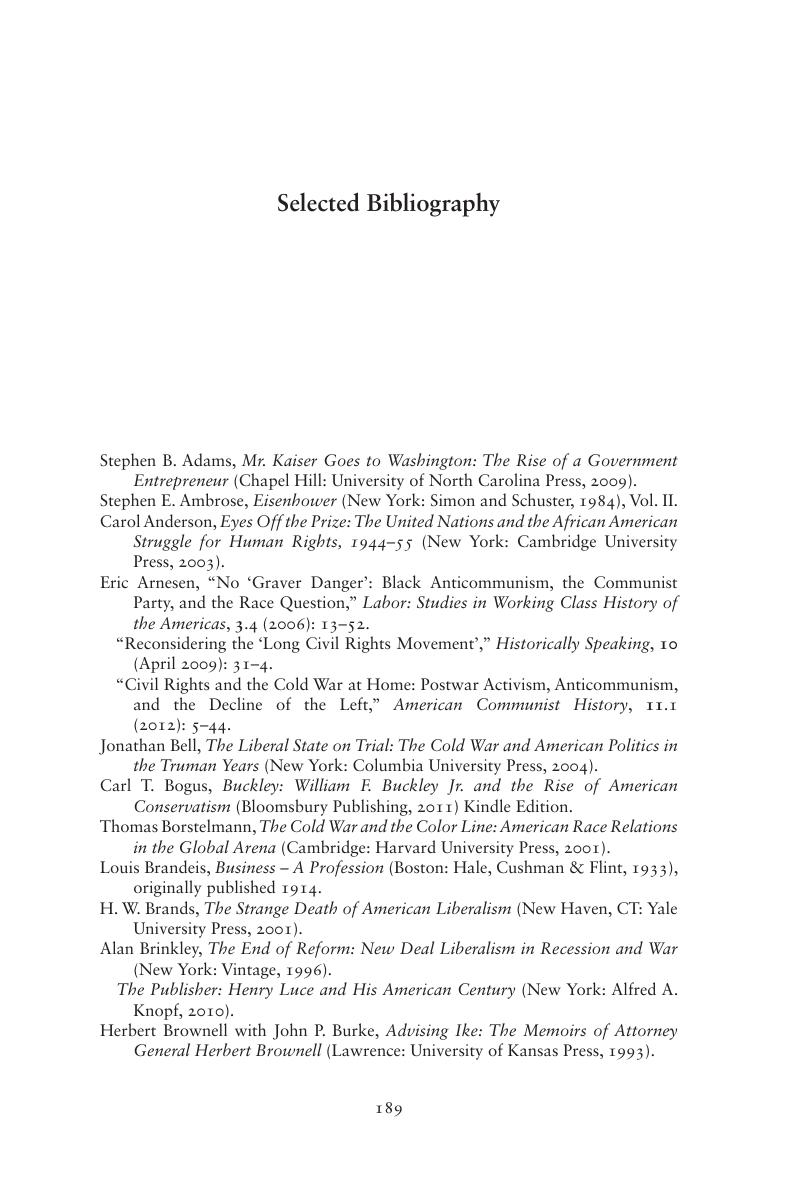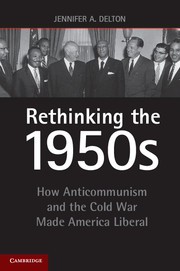Selected Bibliography
Published online by Cambridge University Press: 05 October 2013
Summary

- Type
- Chapter
- Information
- Rethinking the 1950sHow Anticommunism and the Cold War Made America Liberal, pp. 189 - 192Publisher: Cambridge University PressPrint publication year: 2013



